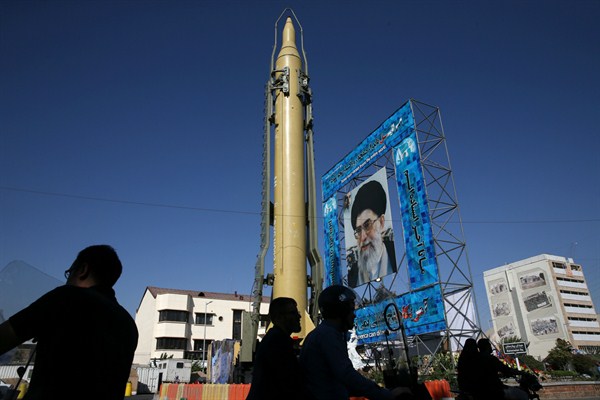Despite Donald Trump’s tough talk about the Iran nuclear deal during the presidential campaign, there have been some signals since the election that his administration may walk back his threat to cancel the accord. But hostility to Iran seems rampant among Trump’s advisers, meaning the spirit, if not the letter, of the agreement will likely be violated. The costs of reverting to a confrontational approach to Iran would include more regional instability, and doing so would raise serious questions about Trump’s commitment to some international norms and practices.
What to do about Iran is one of the prominent foreign policy topics as the president-elect works to build his team of advisers and Cabinet officials. There are some interesting signals that the formal agreement signed by six major powers and Iran in July 2015 may not be canceled, after all. Trump advisers have ruminated in public that they will work to toughen the implementation terms, but that scrapping the agreement—or, more precisely, U.S. participation in it—won’t be necessary. Members of Congress from both parties who were skeptical about the deal have now concluded that it would be more destabilizing to open up the negotiations again, and they will not press the new administration to fulfill its campaign promise.
President Barack Obama believed that successful implementation of the nuclear agreement would gradually improve the ability of political forces in Tehran and Washington to avoid conflict and seek solutions on issues of acute disagreement. He recently told the New Yorker’s David Remnick, “We actually have over a year of proof, and you’ve got the Israeli military and intelligence community acknowledging that, in fact, it has worked.” He added, “So, given that proof, I don’t think that it is inconceivable that Republican leaders look and they say, ‘This thing worked. Obama is no longer in office. This is not something that our base is hankering to undo, and we may quietly leave it in place.’”

